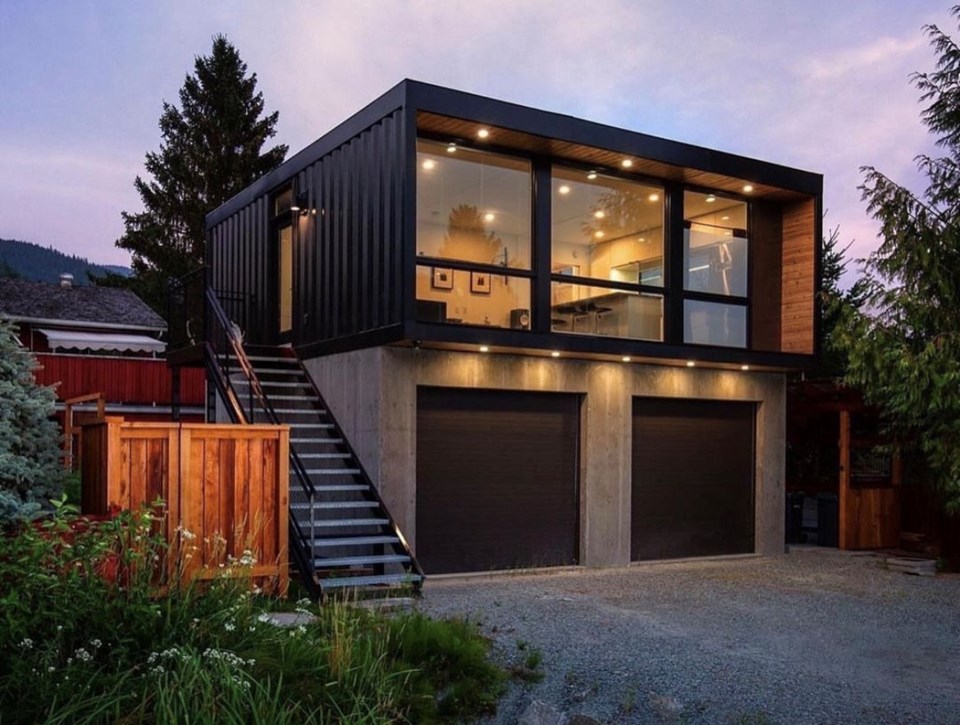Modular housing is said to be an increasingly sought-after type of dwelling as homeowners explore different options in the current market.
In post-pandemic B.C., there has been an “exodus from metropolitan centres,” said Mark Smith, director of operations at Modco Pacific Homes, as more British Columbians look for affordable options.
When it comes to interest in his business, Smith said that there has been a “steady increase” that grows by at least 50 per cent each year, over the last three years.
“For people moving out of the city and looking to put buildings [outside of metropolitan areas], it's really cost-prohibitive to build outside of city limits and modular is a great solution for that,” he said.
According to Statistics Canada, from July 1, 2021 to July 1, 2022, Vancouver, Toronto and Montréal saw record high levels of people leaving the city for other regions within their respective provinces.
Daniel Engelman, co-founder and CEO of Honomobo Corporation, told Glacier Media that there has been a “massive groundswell of interest” in this type of housing.
“We started our company in 2016 and we were crushed with interest from the start. And if anything, it's increased over the years,” Engelman said.
Honomobo Corporation will have an installation at the upcoming BC Home + Garden Show at BC Place Stadium, from March 16 to 19, he says. For first-time homeowners or those looking to leave urban centres, modular housing can be an option that offers more certainty and sustainability. While it might not be the cheapest housing option, there is predictability in the construction, Engelman said.
“Modular housing is cost-secure. You know what you're paying for, it's built in the factory and you get a predictable process and outcome,” he said.
“It's not affordable, cheap housing, by any stretch, but it is attainable and a very high-quality product. Everything on the planet is built in a factory, except for construction and we do believe that that is going to change here over the next decade or so,” he added.
A lot of the certainty comes with knowing that labour will be available to build modular homes, in addition to a reduction in the pressures that face many construction sites, said Matthew Salmon, sales and marketing manager at Triple M Homes.
“One of the one of the opportunities where factories really have had a little bit of a leg up is just in the ability to retain their staff. Builders typically will be competing with each other to have site personnel, whereas factories, at least within Western Canada, are typically unionized and the staff that are there are typically there for their career,” he said.
As more homebuyers prioritize dwellings that don’t have a negative impact on the environment, Smith said that it is “eye-opening” to see how sustainable modular housing is.
“I think it's inherent that the green economics work so much better when you're building modular, all of our waste is in house. So there's a lot of recycling even from project to project,” Smith said.
“Things like cut-off ends from lumber can be reused in the next project, our dump trips are cut down, all of our employees come to one site for the duration of manufacturing for a project and they're not driving across town to different sites each day. It is substantially greener and much, much more sustainable.”
Modular housing is seeing attention in the media as more affordable housing projects are making use of this type of dwelling. The City of Vancouver has many temporary modular housing sites that are working to mitigate the housing crisis in the region, according to the city’s website.
Bryan Depedrina, principal at Fort Modular Inc., said that there has been an increasing demand for affordable modular homes due to the Rapid Housing Initiative, which provides funding to quickly construct affordable and emergency housing.
“The government providing funding to lots of non-profits and First Nations groups that are looking for housing in a timely fashion, both can get funding for it, so that's been really driving demand for modular housing,” Depedrina said.


